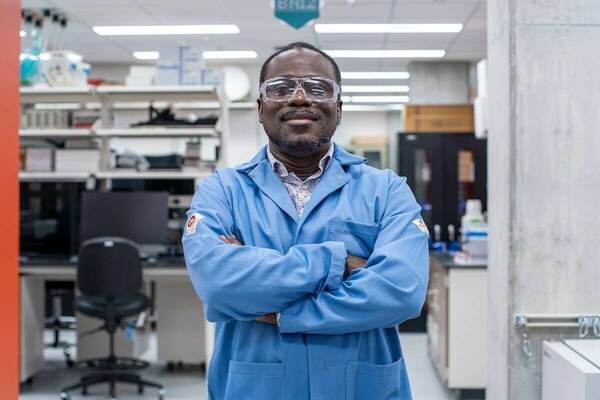ND Expert John McGreevy: Pope Francis, as first pope from Global South, was ‘hugely meaningful’
John T. McGreevy, the Charles and Jill Fischer Provost and Francis A. McAnaney Professor of History, is an expert on the history of Catholicism. He focuses his research on both American and global religion and politics and has authored four books and numerous articles on religious and political history. His most recent work is “Catholicism: A Global History from the French Revolution to Pope Francis.”
“Pope Francis was the first pope from the Global South, now Catholicism’s demographic center, and that has been hugely meaningful,” McGreevy said. “This is reflected in his focus on the poor — a core theme of Latin American theology since the 1970s — and on migrants and the environment. It is also reflected in his commitment to ‘inculturation’ of the liturgy and Catholic life into local, often Indigenous cultures, as well as his restrictions on the use of the Latin Mass.”
According to McGreevy, Pope Francis also did more than any predecessor to “diminish the monarchical dimensions of the papacy.”
“His informal personal style, the willingness to carry his own luggage and live in Santa Marta, all reflected a caution about the idea of the pope as a prince of sorts,” McGreevy stated. “He is continuing the legacy of John Paul II and Benedict XVI here, but in a much more pronounced way.
“Finally, he began through the process of synodality a new way for Catholics to talk about the issues that divide them or new challenges. The impact of this mechanism is uncertain; but it seems unlikely to be stopped entirely.”
Originally published by at news.nd.edu on April 21, 2025.
Latest Research
- As the Harper Cancer Research Institute’s first-ever associate director for translational research, Herman Sintim is working to turn discoveries into new tools for fighting cancerSintim brings a wealth of expertise in both basic science and entrepreneurship to his new role.
- Fall 2025 SAI Graduate Fellowship Program: Applications Open NowNotre Dame Scientific Artificial Intelligence (SAI) Graduate Fellowship The Notre Dame Scientific Artificial Intelligence (SAI) Initiative is excited to announce a semester-long Fall 2025 fellowship program for PhD students seeking to newly…
- Merlin Bruening named 2025 Outstanding Teacher in Notre Dame College of EngineeringMerlin Bruening, the Donald and Susan Rice Professor of Engineering in the Department of Chemical and Biomolecular Engineering, has won the 2025 Outstanding Teacher Award in the Notre Dame College of Engineering.
- Notre Dame Research, Athletics address challenges of ACL tears, sleep loss, and stress in new joint research projectsNotre Dame Research and Athletics have awarded three research teams the first-ever Human Performance & Wellness Research Grants. The grants will provide funding to support exceptional research projects that contribute meaningfully to fields related to the health, well-being, and performance of…
- Expanding endometriosis research: Postdoctoral researcher Ell Handy focuses on women’s healthEll Handy, a postdoctoral researcher at the University of Notre Dame with the Bioengineering Life Sciences Initiative (BELS), seeks to uncover new ways to diagnose and treat endometriosis,…
- ND Expert Arun Agrawal: The Holy Father’s vision in Laudato Si’ is both a beacon and a cautionArun Agrawal, the Pulte Family Professor of Development Policy at the Keough School of Global Affairs and inaugural director of the Just…












